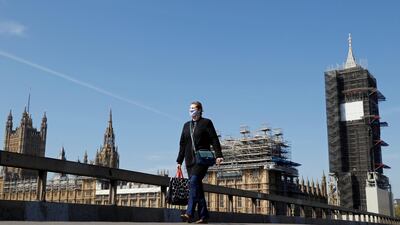The UK government has made an "unprecedented request" to Muslims during Ramadan urging them to stay at home to save lives.
Public Health England has issued official guidance for Ramadan for the first time as places of worship remain closed during the coronavirus lockdown.
"Whilst staying at home throughout the holy month will be challenging, it is necessary to protect the NHS and save lives," it said.
"Staying at home during Ramadan will play an important part in the nation’s effort to slow the spread of coronavirus.
"The government recognises that this is an unprecedented request but following these rules will help control the spread of coronavirus and protect family, friends, the wider community, and the most vulnerable.
"Keeping yourself and loved ones well during Ramadan this year will mean adapting usual religious and cultural practices.
"This is particularly important for protecting vulnerable people who are shielding because of underlying health conditions as well as family, friends and carers of those who are most vulnerable."
It has issued a list of only four reasons why people should leave their homes during the holy month.
These include shopping for basic necessities, exercising once a day, for a medical need or travelling for work purposes.
It is urging people to use technology to stay connected.
"Video and social media could connect you to worship services and ceremonies," it said.
"Individual pastoral and care visits could be received by phone. Despite being physically apart, religious practices could be observed at the same time of day as the rest of your faith community. Your faith leaders will be able to advise you on the many ways for you to stay connected."
UK charity the Ramadan Tent Project has launched the world's largest open iftar using Zoom.
People from across the world will be able to join together and unite online to celebrate through it.
The government is urging those with severe coronavirus symptoms not to fast and to seek medical advice.
The British Islamic Medical Association had sought advice from scholars who agreed there could be an exemption for medics working in vital roles.
Osman Dar, Consultant in Global Health at Public Health England, said the measures are necessary to protect the vulnerable.
"Ramadan is a time for prayer, contemplation, self-sacrifice and charity – all of these qualities are key to supporting our collective effort in tackling this pandemic," he said.
"This Ramadan, let’s think about how we can best protect the most vulnerable in our families, amongst our neighbours and in all our diverse communities. By working together we can minimise the transmission of coronavirus and reduce the chances of overwhelming our health and care services.
"Let us not forget the deeply spiritual reminders this pandemic brings; unite, pull together and leave nobody behind insha’Allah."





















